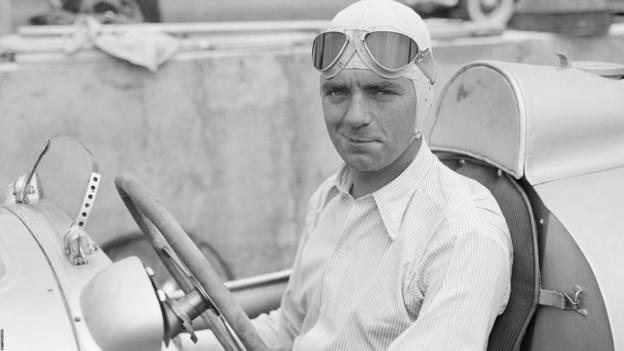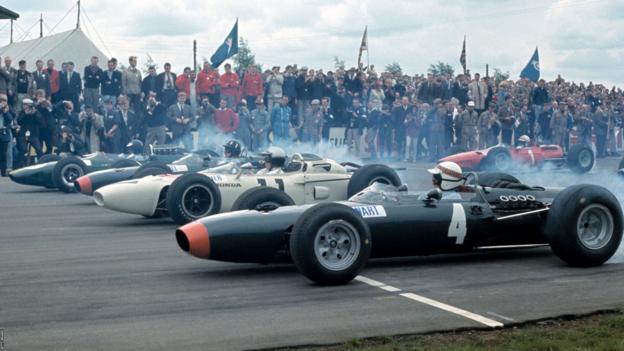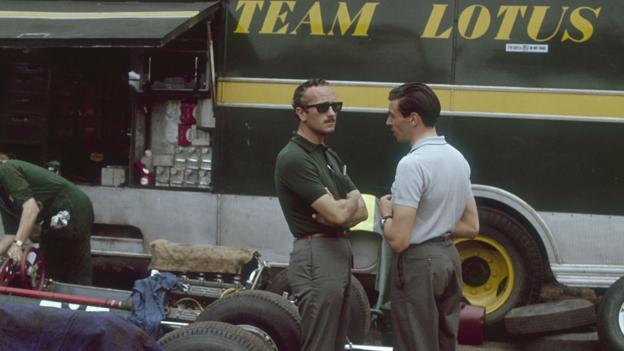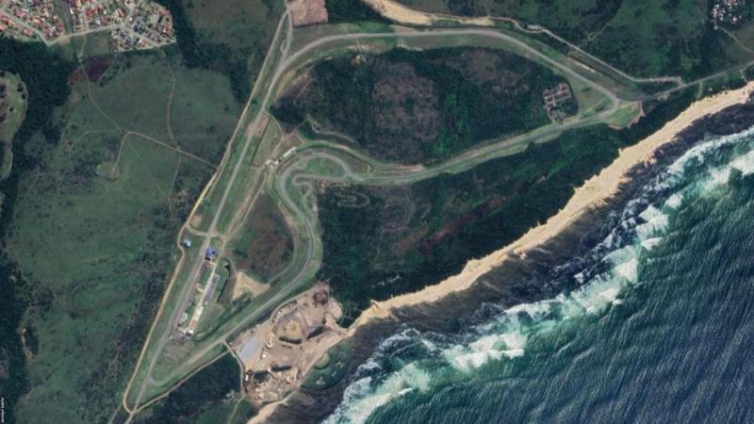As a new year begins, race fans often can’t wait for the start of the fresh F1 calendar. Well, in 1965 they had no wait at all - the first Grand Prix of that season was on 1 January.
Put back a week from its original Christmas slot in the final week of 1964, it nevertheless marked an end in a different way - the last F1 race at the Prince George circuit in East London (in the Eastern Cape Province), until that point the exclusive home of the South African Grand Prix.
And it ended with one of the most extraordinary statistics in the sport's history: five of the six points positions were taken by British drivers, a record that still stands and seems unlikely ever to change.
European elite

The Prince George track is still there - indeed, the winding Marine Drive along the seafront is still an essential part of both the circuit and the country’s infrastructure, connecting the west of East London with the beaches and reserves that make this part of the country renowned for its natural beauty.
It was while driving this road on a lazy Sunday in the 1930s that the English-born newspaper editor Brud Bishop had first realised its potential for a motor race.
Bishop was so well-connected that once he started working up his contacts, what had been an idle notion was soon a national event called the Border 100 - and then an international one, attracting cars from abroad and going on to become the first South African Grand Prix in 1934.
Nothing like it had been seen in the country before - indeed anywhere on the continent outside of North Africa. The circuit designed by Bishop was 15.2 miles, only a couple less than the fearsome Nurburgring which had opened a few years previously. The race had a prize of £250 and attracted a crowd of 65,000.
In winning it, the American Whitney Straight set a world record average speed for circuit racing of 95.43 miles per hour.
Just two years later - on a track shortened to avoid travelling through the township of West Bank and renamed the Prince George Circuit - the race was attracting the elite of European racers: Bernd Rosemeyer, Dick Seaman and Luigi Villoresi.
Despite this, it wasn’t until 1962 that South Africa ended up on the full F1 World Championship calendar, and the event would play a decisive role in the title race.
Britain's Jim Clark seemed destined for glory until an oil leak caused his gearbox to seize up with 20 laps to go; compatriot Graham Hill took over to win both the race and the title - but Clark at least got a chance for redemption in 1963 when he cruised to the last win of a season he had completely dominated.
It was reflective of a wider picture of British success in the sport. This was the UK’s peak era; neither before nor since has such a variety of any country’s drivers and teams won so regularly.
Out of control

Hill had been champion in 1962, Clark in 1963 and John Surtees in 1964. No other nation has ever produced three different back-to-back champions.
The only question for 1965 was: which one of them would become the first double champion?
Well, the South African race gave a pretty strong indication.
Qualifying was held as gale-force winds swept in from the sea. Amid these conditions Clark was nearly wiped out when one of the local drivers spun and came back on to the circuit with the car still out of control.
Nevertheless, Clark took pole position ahead of his Lotus team-mate Mike Spence. And just as in 1963, once the race started he sped away from the rest of the pack.
Spence had no hope of keeping up with him but held solidly in second place until he spun, for the fourth time that weekend.
This left him only three seconds ahead of the reigning champion, Surtees. Surtees and Hill kept pushing until in a remarkable moment - sadly not captured on camera - Spence spun again and the two champions passed him, one either side.
British dominance

Extraordinarily, as Clark received a pit board telling him there was one lap left, the chequered flag came out. Confused, Clark slowed and checked with his pits. They told him they were sure they were right and Clark should continue and get another lap in just in case.
They were right - the man waving the flag had made a mistake.
When the race did end, five of the six points places had union flags next to them. Surtees was second, Hill third and Spence fourth, while in sixth place, behind the New Zealander Bruce McLaren, was a young driver making his debut - Hill’s new team-mate Jackie Stewart.
Stewart would go on to become Britain’s first triple F1 champion.
Among the Brit pack, Mike Spence was the odd one out - he would never win a world championship race, let alone a title.
He did get a measure of redemption by winning the South African Grand Prix in 1966. Sadly for him, it did not count as part of the championship and he was dropped by Lotus by the time the official season started.
The South African Grand Prix would return to the proper F1 calendar in 1967 - but East London would not. By now a brand new circuit had been built, one that would become synonymous with the race from then to now: Kyalami.
Latest Stories
-
High rate of youth in gambling a cause for concern – GHACOE
54 minutes -
Mahama admits inheriting $8.98bn reserves from previous government
1 hour -
Financial institutions urged to support innovation, sustainability in the Agric sector
2 hours -
Ex-Finance Minister calls for tougher reforms to curb Ghana’s tax revenue leakages
2 hours -
Mahama calls for investment in value chains with high growth potential at 3rd Ghana-EU Business Forum
2 hours -
Cedi stability can’t be attributed to GoldBod – Kabiru Tiah
2 hours -
Jennifer Lopez sued for posting photos of herself
2 hours -
The appreciation of the Ghana cedi: Strategic marketing responses to price reduction pressures
2 hours -
TechForward Policy Fellowship: Dr. Folashade Soule unpacks Africa’s path to digital sovereignty
2 hours -
Sedem Segbedzi-Semekor crowned ‘Face of Lisben 2025’
3 hours -
YEA donates bags of maize to some SHSs in Bono Region
3 hours -
BBC uncovers child sex abuse in South Africa’s illegal mines
3 hours -
Combined Kumasi Central Market Unions beseech KMA to recompense promised eviction package
3 hours -
Keren Tetteh: Transforming Lives through Communication Empowerment
3 hours -
Resign honourably! UTAG-UG to Auditor-General over “unethical” audit report
3 hours

